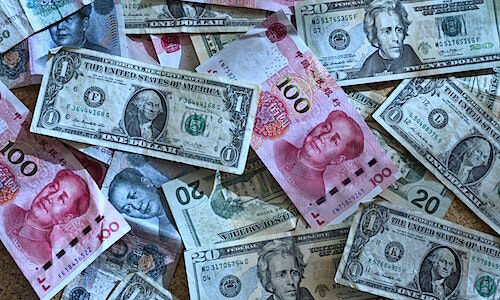Oaktree Capital: China’s First Foreign Bad Loan Manager
A surprise inclusion in the phase one U.S.-China trade deal, Oaktree Capital Management becomes the first foreign beneficiary of liberalized access to the mainland's distressed debt market.
The Los Angeles-based distressed debt manager completed registration to obtain a license to engage in asset management activities through a wholly-owned entity eyeing a bad loan market the Chinese government estimates to be 2.41 trillion yuan ($345 billion) or 1.86 percent of outstanding debt.
Oaktree Capital, which has over $120 billion globally in assets under management, named Meng Yuanyuan as the legal representative of its Beijing unit alongside registered capital of $4.6 million.
Seasoned Player
With corporate defaults expecting to total $18.6 billion in 2019, up from 2018’s $17.4 billion according to Bloomberg data, investors are eyeing China’s growing distressed debt market following years of credit-fueled expansion. Whilst conventional issues linked with China such as transparency and access may hinder most, Oaktree Capital is a relatively seasoned player.
According to public data, the American asset manager has invested $6.5 billion in China's distressed debt market. It opened Beijing, Shanghai and Hong Kong offices in 2007 before becoming a pioneer in accessing Chinese capital through the Qualified Domestic Limited Partner channel. In 2015, it began its venture into China’s non-performing loan market which includes eight bad asset packages.
Improved Environment
According to a PwC report, pricing efficiency has long been one of the major hurdles for foreign investors as local banks demonstrated persistent unwillingness to sell non-performing loans at a loss. The first recorded exception occurred this year concurrently as the country experienced a handful of historical bank seizures.
This will be all the more necessary for investors demanding higher returns from risk premium in Chinese markets. Data indicated that investors were seeking 13-15 percent annualized returns from Chinese bad debt which received another $1.1 billion from international buyers in 2019.

























